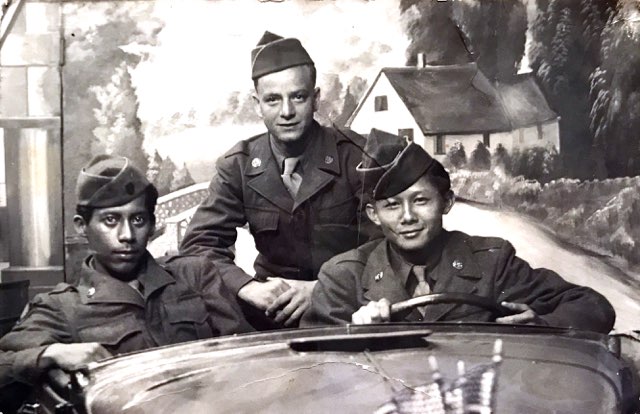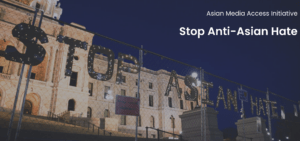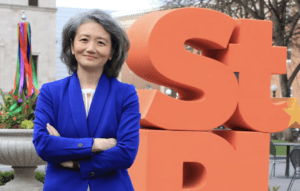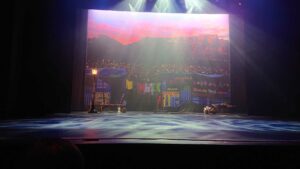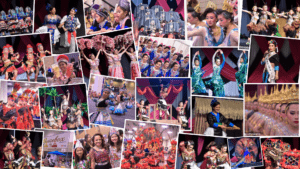Pictured above, Eric Won’s father from World War II, when he was serving in Germany.
Preface: Asian Media Access is hosting a series of interviews with Northside neighbors to explore how we can navigate this new reality together and find ways to support our neighbors in need. This third interview is with Eric Won, retired Northside community leader.
Q: Please introduce yourself, and share your connection to the Northside? How has your vision for this community evolved over time?
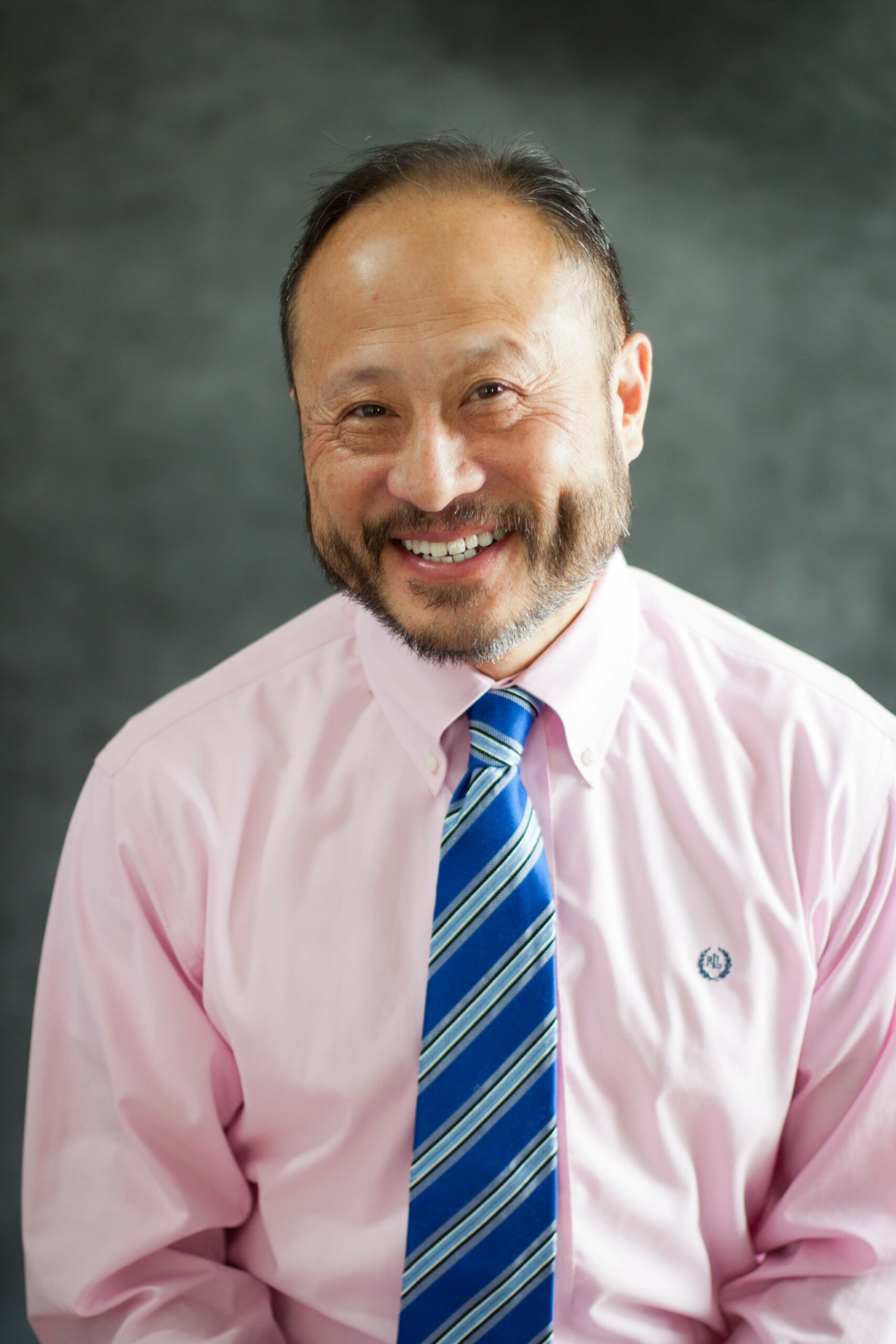 My name is Eric Won, and I was born and raised in Honolulu, Hawaii, of Chinese heritage. My family immigrated to the Kingdom of Hawaii over 150 years ago, and my grandparents were subjects of the Hawaiian monarchy before becoming U.S. citizens after annexation. I come from a proud lineage of military service—my grandfather served in World War I, my father in World War II (receiving a Congressional Gold Medal), and seven of my uncles also served in the U.S. military. I studied at Princeton, the University of Hawaii, and Cornell, then spent 35 years in Washington, D.C. as a federal and corporate executive. My public service began in the Executive Office of the President under Jimmy Carter, where I managed the White House AI Unit and later held roles such as Chief Technologist and National Director at the SBA. In 2010, I was honored to be appointed by the Obama Administration as a federal mentor for AAPI executives.
My name is Eric Won, and I was born and raised in Honolulu, Hawaii, of Chinese heritage. My family immigrated to the Kingdom of Hawaii over 150 years ago, and my grandparents were subjects of the Hawaiian monarchy before becoming U.S. citizens after annexation. I come from a proud lineage of military service—my grandfather served in World War I, my father in World War II (receiving a Congressional Gold Medal), and seven of my uncles also served in the U.S. military. I studied at Princeton, the University of Hawaii, and Cornell, then spent 35 years in Washington, D.C. as a federal and corporate executive. My public service began in the Executive Office of the President under Jimmy Carter, where I managed the White House AI Unit and later held roles such as Chief Technologist and National Director at the SBA. In 2010, I was honored to be appointed by the Obama Administration as a federal mentor for AAPI executives.
I continue to serve the community as Chair of Minnesota’s Public Safety Advisory Council, State Co-Chair for DFL Outreach and Inclusion, and board member of various cultural and charitable organizations. The Advisory Council—formed after George Floyd’s death—aims to bridge law enforcement and diverse communities to build trust and accountability. As a North Minneapolis resident for the past seven years, I live in the only home in the area listed on the National Register of Historic Landmarks. I’ve seen the Northside’s challenges and progress firsthand, especially around public safety. While issues like car thefts persist, I believe strong leadership and community collaboration will continue driving positive change.
Q: From your perspective, how have the recent executive orders impacted the Northside and its residents? Are there specific challenges you’ve observed?
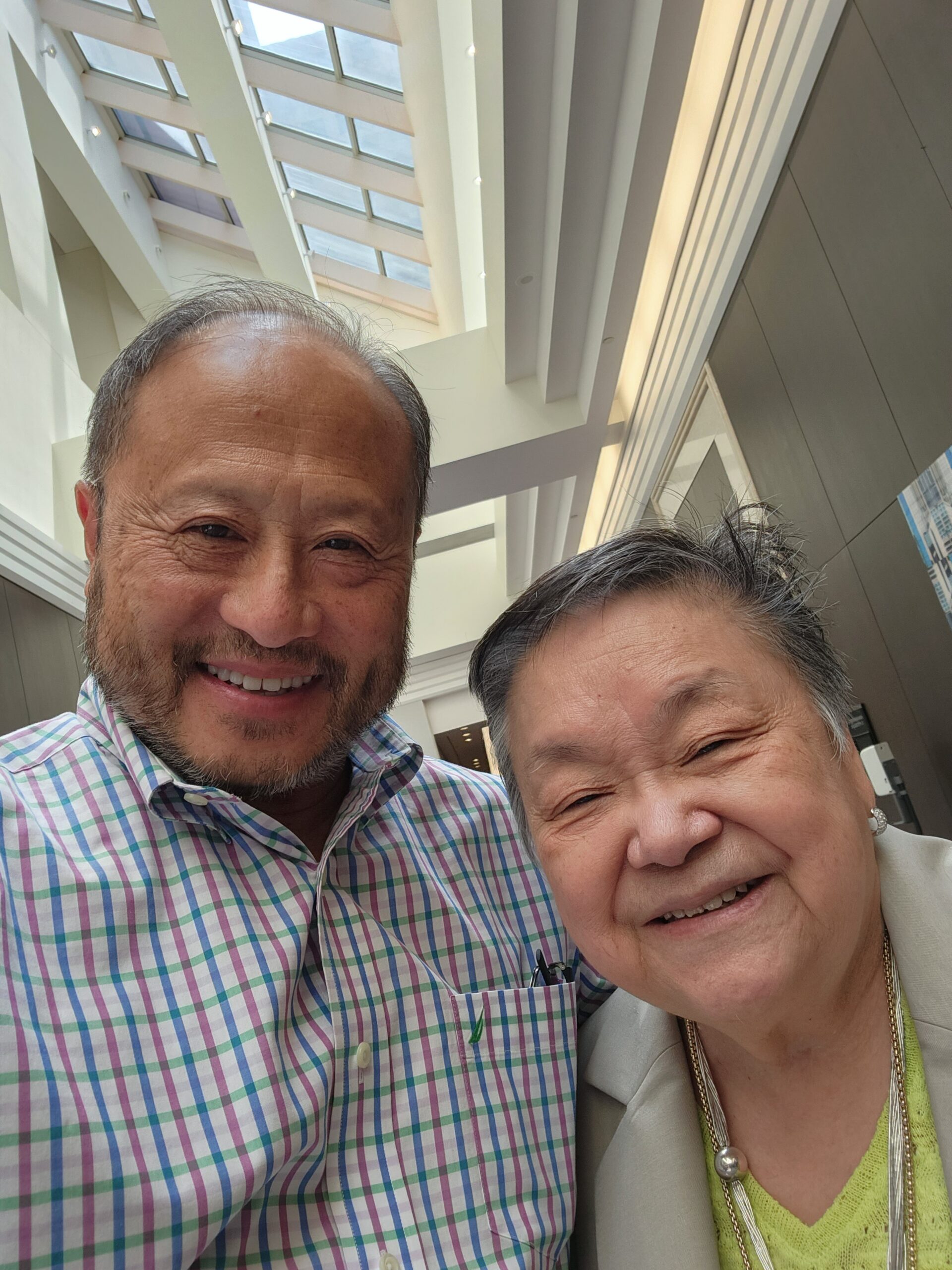
I believe that uncertainty and anxiety surrounding the barrage of executive orders come from a lack of clear information and understanding of government processes. Policies like the potential elimination of the U.S. Department of Education are discussed without concrete explanations of how they will impact schools, students and families. Everything is happening so fast that it feels overwhelming and uncontrollable. Without transparency and reliably factual communication free from political bias, it’s difficult to grasp what these policies truly mean for us.
I also see a deeper issue—many people simply don’t understand how Executive Orders work or how to engage in our democracy. Civics education is no longer a priority, leaving many feeling like passive observers (or victims) rather than active participants. If we don’t know how decisions are made, we can’t influence them. I believe it’s crucial to provide people with practical insights from those who have successfully navigated government processes, so we can all make informed decisions and take meaningful action.
Q: What do you think are the most urgent needs for our communities in response to these changes?
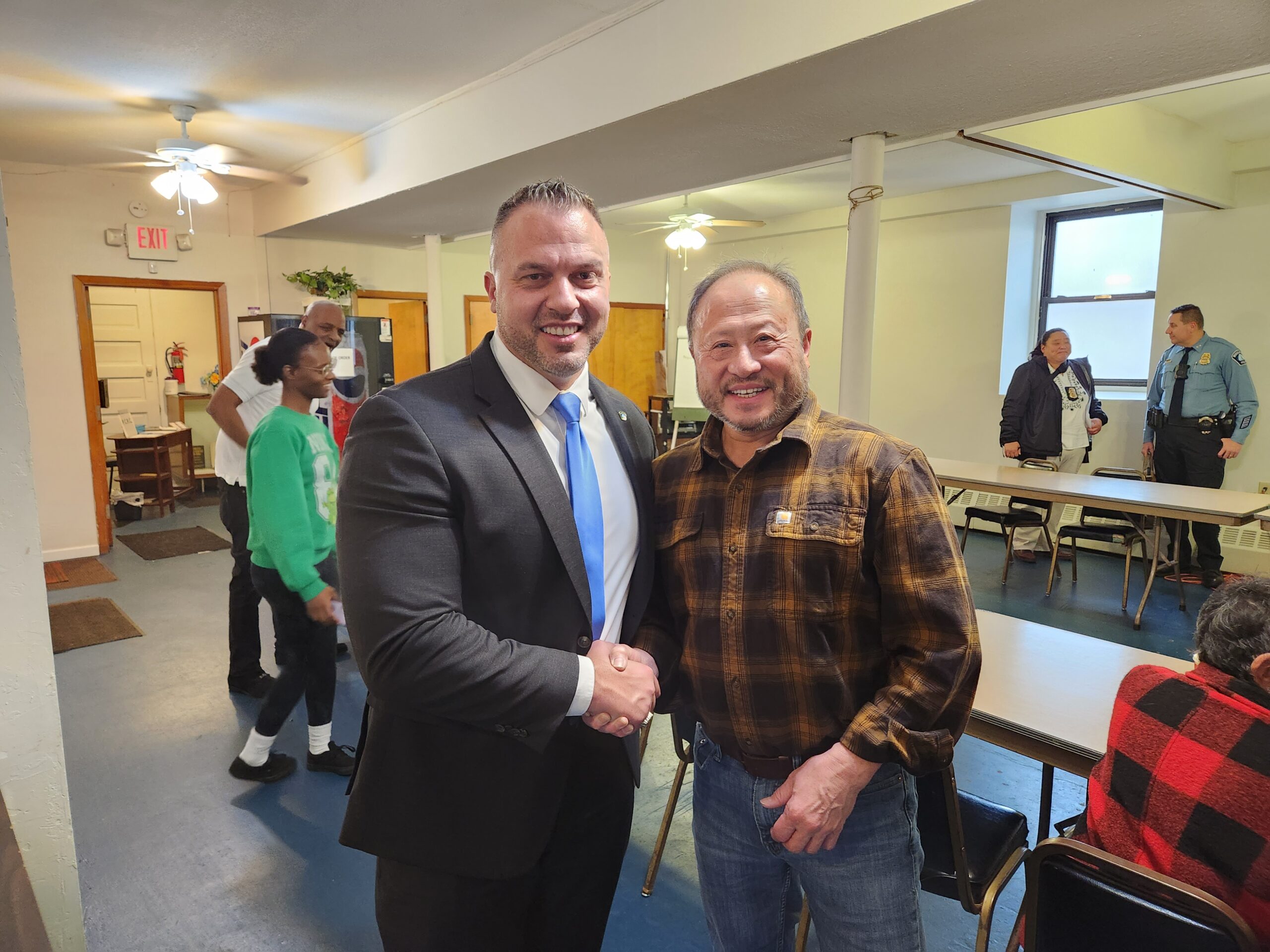
One of the most urgent needs for our communities is to understand how the “democracy game” is played. We need to provide civics education so people not only grasp what is happening but also learn how they can influence public policy at every stage. Many people don’t fully understand what an Executive Order is or how it impacts them. Those who want to engage need access to clear, factual information about government processes. Without this knowledge, people often miss the opportunity to voice their concerns or provide critical input before decisions are made. This is OUR democracy, so we need to manage and care for it.
Next, we need to show people how to win. Understanding the system is just the first step—communities also need guidance on how to strategically influence policy making and effectively engage with elected officials so that our voices are heard. We need accessible, practical lessons on how democracy works and how to take meaningful action. By equipping people with these tools, we can help each other become active participants rather than passive observers in shaping policies that affect their lives.
Q: How can we work together to mitigate these impacts and support the Northside community effectively? What solutions or collaborations do you see as most promising?
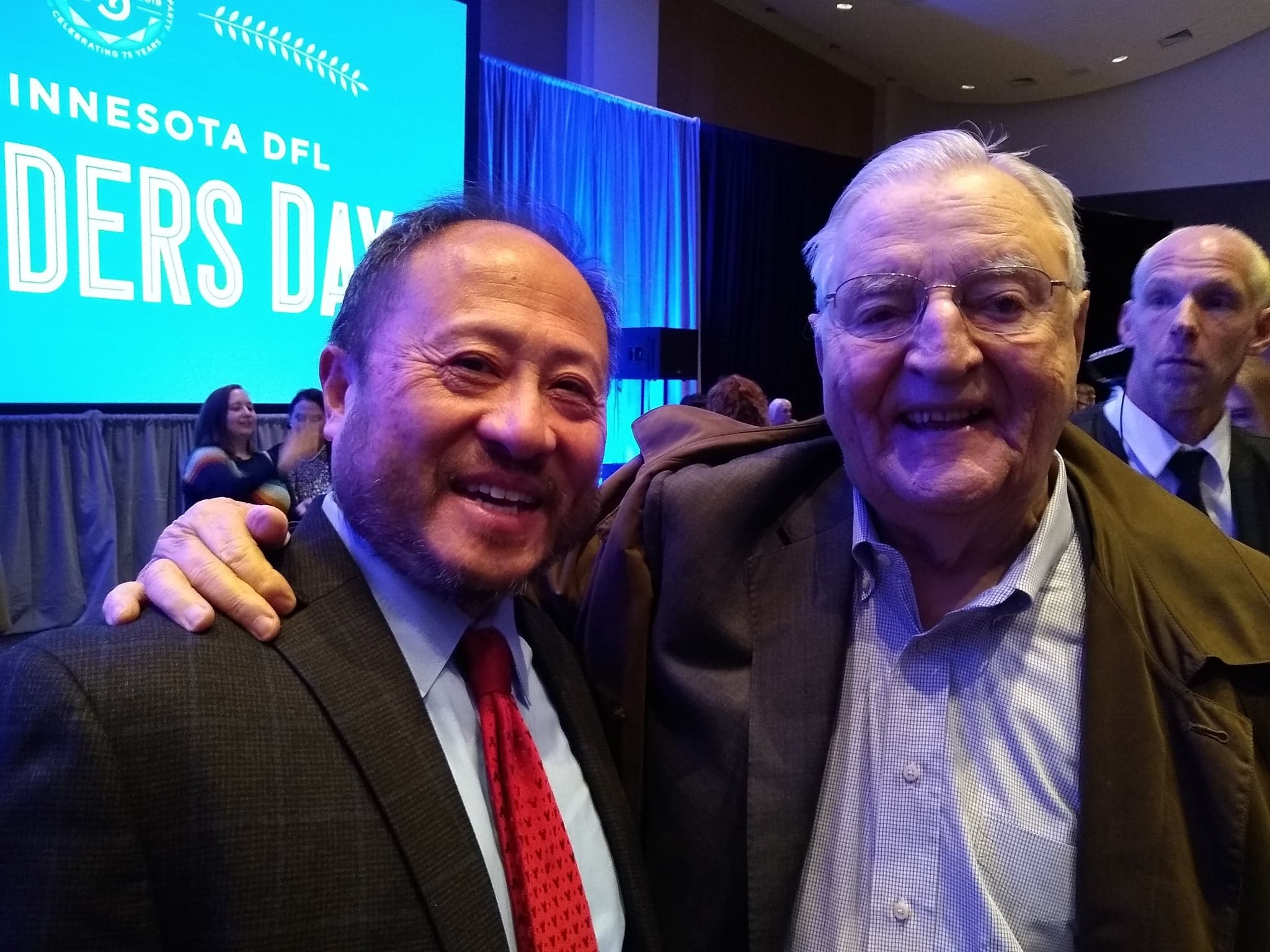
To effectively support the Northside community and mitigate these impacts, we need to take a multi-layered approach. First, we must provide civics lessons so people understand how the public policy system works and how they can engage with it. Second, we should create spaces for constructive discussions on key issues like health care and education, allowing community members to engage in meaningful conversations from the neighborhood level to the international stage. Third, we need to teach people how to make their voices heard and influence outcomes by first understanding how to gain power. Finally, we must focus on organizing and building a well-informed electorate with enough critical mass to influence decision-makers. This requires collaboration, not just within our own communities but also by seeking alliances beyond our immediate groups to strengthen our collective power and this includes other cultural and ethnic groups.
FMI: If members are interested in connecting with Eric Won, please send him an e-mail at eric@leadershippraxis.com. If members are interested in sharing their viewpoints with Asian Media Access, please contact us at amamedia@amamedia.org.

